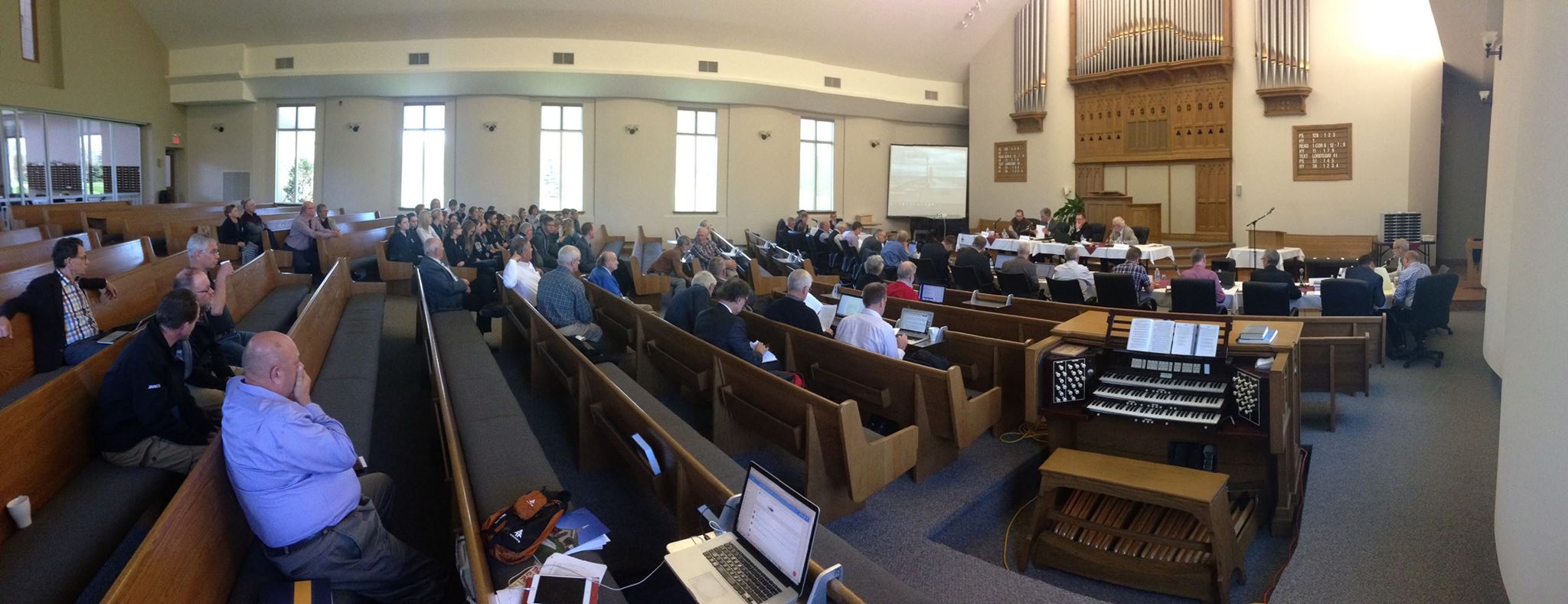Synod Dunnville 2016 (7)


Today I’m going to review some of the highlights from Day 7 of Synod Dunnville, the proceedings of Wednesday May 18.
- Synod
junkiesobservers have especially been keen to see what would be decided about the Reformed Churches in the Netherlands (RCN). A lot was discussed and considered and I’ll do my best to put the end result in an easily-digestible format for you — if you want the full details, see article 104. The Canadians have had a number of items of concern such as the teaching of the Theological University in Kampen, women in office, and relations with the Nederlands Gereformeerde Kerken. Synod considered (3.2) “with sad and heavy hearts” that there is no evidence of returning to the full authority of Scripture on such items of concern and, in fact, things have actually gone further down the “course of deformation.” However, Synod 2016 decided not to fully go the route proposed by the committee (see here). While continuing ecclesiastical fellowship with the RCN, rules 4 and 5 have been suspended. These rules have to do with accepting attestations and allowing ministers on the pulpits. These things are no longer automatic. As for the future, rather than having the RCN Synod 2017 decide by repenting or not, the continuance of EF is something that will have to be determined at the next CanRC Synod in 2019. This approach is similar to that being taken by the Free Reformed Churches here in Australia. Finally, it should be noted that Synod Dunnville did recognize with gratitude that there are still faithful believers in the RCN. There are brothers and sisters who are still trying to right the ship. Yet, sadly, it cannot be denied that there is increasing evidence of “tolerance of deviations from Scripture and the confessions.” We will have to wait another three years to see whether the CanRCs will take the final step of breaking off EF with the RCN. Before then, in 2018, the next FRCA Synod will meet on this side of the world. Given that the Canadian approach appears to be more or less following the Australian, that may be the more defining moment. - Article 111 features the decisions regarding the Committee for Bible Translation. The gist of it: the ESV continues to be recommended for use in the CanRCs. However, Synod 2016 also noted that a general synod may not forbid the churches to use the NIV2011 if they so desire, even if it’s not possible to recommend that translation. As I see it, the reasoning applied there actually opens up the possibility for local churches to use whatever translation they desire.
- In article 122, the question of how to bring in new hymns was discussed and decided upon. GS 2013 said that churches had to “go the ecclesiastical way” and propose new hymns via classis and regional synod. GS 2016 says, “No, you can send your proposals directly to the Standing Committee for the Book of Praise. They can evaluate and bring forward whatever they think is worthy of consideration.” Another course reversal.
- The question of theological students has been raised, specifically: should they be connected to their “home church”? Should they be examined by their “home classis,” rather than having all the (licensure/candidacy) examinations basically done in one classical region? A proposal came from Regional Synod West 2015 to change the way things are done. Synod Dunnville (article 112) decided to maintain the status quo. A student comes to Hamilton, becomes a member of one of the local churches, and consequently will be examined in that classical region — which means, more often than not, Classis Ontario West.


